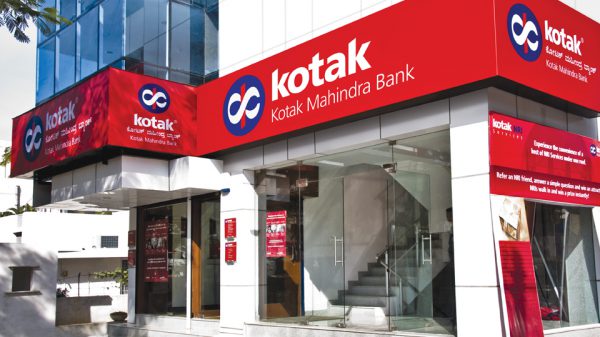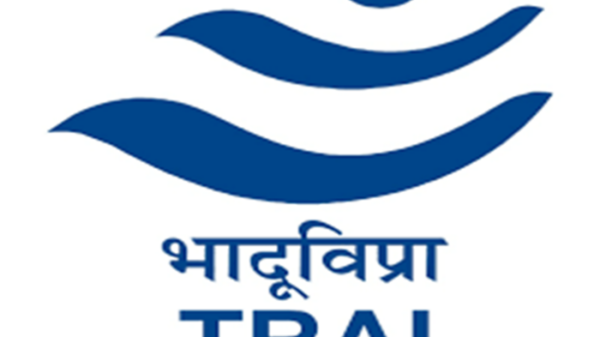The Bangladesh Telecommunication Regulatory Commission (BTRC) has come up with regulations, akin to India’s IT rules, 2021, for social and digital media, including OTT platforms in the country. The commission wrote that the BTRC Regulation for Digital, Social Media And OTT Platforms, 2021, was drafted so as to provide a complaint mechanism wherein users of digital platforms can register their complaint and get it addressed within a defined timeline.
A more elaborate draft containing the rules for OTT platforms was published separately on February 3, 2022 by the Bangladesh Ministry of Information and Broadcasting which has sought opinions from the public and stakeholders. Here’s a comparative summary of the draft rules for OTT platforms with India’s Information Technology (Intermediary Guidelines and Digital Media Ethics Code) Rules, 2021.
Definitions laid down in the draft regulation
The BTRC explains several terms in the draft rules to provide context on what will be covered by the rules once they are notified by the government.
Digital Media: It includes “digitized content that can be transmitted over the internet or computer networks and includes content received, stored, transmitted, edited or processed by a publisher of online curated content,” the draft read.
OTT: It means content, a service or an application that is provided to the end-user over public internet.
- On demand: The term implies a ”system where a user, subscriber or viewer is enabled to access, at a time chosen by such a user, any content in electronic form, which is transmitted over a computer resource and is selected by the user.”
Online curated content: The definition covers any “curated catalogue of audio-visual content, other than news and current affairs content, which is owned by, licensed to or contracted to be transmitted by a publisher of online curated content, and made available on demand, including but not limited through subscription, over the internet or computer networks, and includes films, audio-visual programmes, documentaries, television programmes, serials, podcasts and other such content,” as laid down under the regulations.
- Publisher of online curated content: The phrase means a publisher who, performing a significant role in determining the online curated content being made available, makes available to users a computer resource that enables such users to access online curated content over the internet or computer networks, and such other entity called by whatever name, which is functionally similar to publishers of online curated content but does not include any individual or user who is not transmitting online curated content in the coursse of systematic business, professional or commercial activity,” the draft read.
India’s IT Rules: The draft did not outline a definition of OTT platforms specifically but it did define digital media and online curated content.
- Digital Media: It covers “digitized content that can be transmitted over the internet or computer networks and includes content received, stored, transmitted, edited or processed by-
- an intermediary; or
- a publisher of news and current affairs content or a publisher of online curated content;
- Online Curated Content: It includes “visual content, other than news and current affairs content, which is owned by, licensed to or contracted to be transmitted by a publisher of online curated content, and made available on demand, including but not limited through subscription, over the internet or computer networks, and includes films, audio visual programmes, documentaries, television programmes, serials, podcasts and other such content,” the document read.
Code of Ethics laid down by BTRC
The BTRC has laid down a provision for a Code of Ethics to be drafted by the Ministry of Information and Broadcasting periodically. It will be applicable upon the following:
- Publishers of news and current affairs content;
- Publishers of online curated content;
- Web-based programs/films/series
The commission wrote that everyone will have to abide by the rules or the publisher will be liable to face legal consequences.
Functions of the Ministry
The ministry will issue guidelines for a mechanism of self-regulation and complaint redressal. It will also be responsible for coordinating the loyalty to the Code of Ethics through development of an oversight mechanism by undertaking the following:
- Publish a charter for self-regulating bodies, including Codes of Practices
- Establish an Inter-Ministerial Committee for hearing grievances
- Grievances arising out of the decision of self-regulating bodies must be referred to the Inter-Ministerial Committee.
- The referral should also take place where no decision has been taken by the self-regulating body within the specified time period.
- Appoint an officer as the Authorised Officer for purposes of issuing directions under this code.
India’s IT Rules: A careful reading of the Code of Ethics laid down in the IT Rules, 2021, suggests that BTRC referred closely to the Indian version. The rules in Code of Ethics apply to curated content providers like Netflix, Amazon Prime Video and Hotstar, among others. The Indian Code of Ethics is also more elaborate and features the following points:
- General Principles
- Streaming services must exercise “due caution and discretion” with respect to content that “affects the sovereignty and integrity of India, “threatens, endangers or jeopardises the security of the State,” and “is detrimental to India’s friendly relations with foreign countries”. Content which “is likely to incite violence or disturb the maintenance of public order” also falls under this category.
- Streaming services “shall take into consideration India’s multi-racial and multi-religious context and exercise due caution and discretion when featuring the activities, beliefs, practices, or views of any racial or religious group.”
- Content Classification
- Content should be classified into the following ratings:
- U (suitable for everyone),
- U/A 7+ (suitable for seven year olds and older with parental guidance),
- U/A 13+,
- U/A 16+,
- A (restricted to adults).
- Content should be classified into the following ratings:
- Content shall be classified on the basis of
- Themes and messages;
- Violence;
- Nudity;
- Sex;
- Language;
- Drug and substance abuse;
- Horror
Summary of Bangladesh’s draft regulations for OTT platforms
The BTRC Regulation mandates that platforms will require registration after gaining security clearance from law enforcement agencies, according to a report by Dhaka Tribune.
“The Home Ministry would run background checks on the companies,” the newspaper wrote in its report.
The draft explained that Bangladeshi OTT companies will be able to deliver their services only after acquiring the clearance whereas international OTT companies will be provided the security clearance by the Foreign Affairs Ministry after it evaluates their background. The registration would be valid for three years, Dhaka Tribune reported.
Responsibilities of OTT platforms
- The platforms will not be governed by a censor board but will have to adhere to rules on obscenity, defamation, and hurting religious sentiments, the report added.
- They will have to apply their own judgement on content as there is no censor board and preserve content for one year so it can be extracted if anyone files a complaint.
- The platforms will have to appoint a complaint officer and publicise their name, designation, and contact information. They will have to address complaints from aggrieved users and dispose of them in 21 working days.
- The government can remove any “objectionable content” without any hearing. They have also barred OTT platforms from hosting talk shows, and news content.
- OTT platforms will have to classify their content into categories defined by age, and add parental lock mechanism, pin, and password to accounts.
- The categories will be as following:
- All Ages (G),
- Parental Guidance (PG),
- Parental Guidelines (12-15 years old)
- Content for adults (15+).
- The categories will be as following:
Which content cannot be released on OTT platforms?
The ministry has said that the platforms will not show content which:
- Undermine the Liberation War, national anthem, national flag, or the state’s principles
- Hurts religious sentiment or encourages militancy
- Sexually explicit material in content for children
- Prohibited by law or a court order
- Affects bilateral relations with friendly countries
The report said that the government will scrap the registration of a platform for violations. The platforms will get 30 days to explain their allegations.
India’s IT Rules: It can be reasonably established that India’s IT Rules served as a reference point for the Bangladesh government’s Ministry of Information and Broadcasting and as is evident from quotes given by ministry officials to newspapers. The Indian IT Rules also prescribe three levels of regulation for OTT platforms.
- Streaming service itself (Level I): Streaming services shall accept complaints through a designated grievance redressal officer, who is required to process the complaint and have a decision within fifteen days.
- Self-regulatory organisation setup by the streaming service (Level II): This SRO shall be headed by a retired Supreme Court justice, High Court justice, or “an independent eminent person” from the entertainment industry. It will also have up to six other members, who are “experts from the field of media, broadcasting, entertainment, child rights, human rights or such other relevant field”.
- Oversight mechanism by the Government (Level III): The government will publish a charter for SROs. It shall create an inter-departmental committee to hear grievances that have not been resolved in Level I and II. This committee can require content providers to reclassify their content’s age rating, edit the synopsis, or apologise. Complaints can also be referred to by Level III for blocking or censoring under Section 69A of the IT Act.
Also Read:
- MIB asks media organisations to disclose details under IT Rules, despite court ruling
- IT Rules FAQs: What is pending to be explained by the I&B Ministry?
- What does the Indian government’s FAQs on IT Rules 2021 fail to answer?
- How the IT Rules FAQs add to the arbitrariness and confusion around the rules
Have something to add? Subscribe to MediaNama here and post your comment.





























